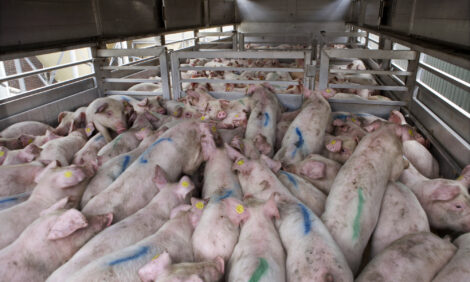



USMEF Chief Hails Trade Developments with Japan a Success
US - The importance of the US-Japanese economic relationship, particularly as it relates to US agriculture and red meat exports, was highlighted by US Meat Export Federation (USMEF) President and CEO Philip Seng in an address before a packed media audience in Tokyo last week.“On 1 February, 2013, Japan rationalised its import restrictions to allow beef imports from US cattle less than 30 months of age,” said Mr Seng . “The United States appreciates the action and the way this was handled (by Japan). We appreciate how smoothly the process has gone thus far. The US beef industry is committed to the Japanese market and looks forward to an even closer partnership.”
This change in Japan’s policy on beef imports is expected to contribute to a 45 per cent increase in US beef exports to that nation in 2013. In 2012, Japan purchased 152,763 metric tons (336.8 million pounds) of US beef muscle cuts and variety meat valued at $1.03 billion.
At the same time, Japan remains the No. 1 value market and No. 2 volume market for US pork, buying 455,776 metric tons (just over 1 billion pounds) valued at nearly $2 billion last year.
Mr Seng noted that while volatile weather trends can affect livestock feed costs and supplies, it is anticipated that the US will see increased pork volumes available in the year ahead and continued solid pork exports to Japan, where US pork has been the No. 1 imported pork for eight consecutive years.
Mr Seng also addressed Japan’s involvement in the Trans-Pacific Partnership (TPP). Japanese Prime Minister Abe announced Japan’s commitment to join the TPP discussions on 15 March, and less than a month later the US offered its support for Japanese participation in TPP.
TPP is often referred to in Japan as TPP mondai (question),” said Mr Seng. “I like to call it TPP kikai (opportunity). The USMEF and our industry strongly endorse Japan’s participation in TPP. We stress that the last word in TPP is ‘partnership.’ We regard TPP as a partnership – a collaborative effort.”
The importance of TPP, Mr Seng noted, is that its participants represent 40 per cent of global wealth and one-third of global trade. But he acknowledged that there is some reluctance expressed by members of Japan’s agricultural sector.
“I have traveled extensively around the world, and Japanese food is reputed to be the most exquisite,” said Mr Seng. “Everywhere, the concept of umami (distinctive yet subtle Japanese flavor) is in fashion. The United States, Europe, Canada, Australia, all around the world — countries would love to have the reputation that exists for Japanese food. This (TPP) is a huge opportunity for Japanese farmers to build on the excellent reputation of Japanese food with their farm products.”







